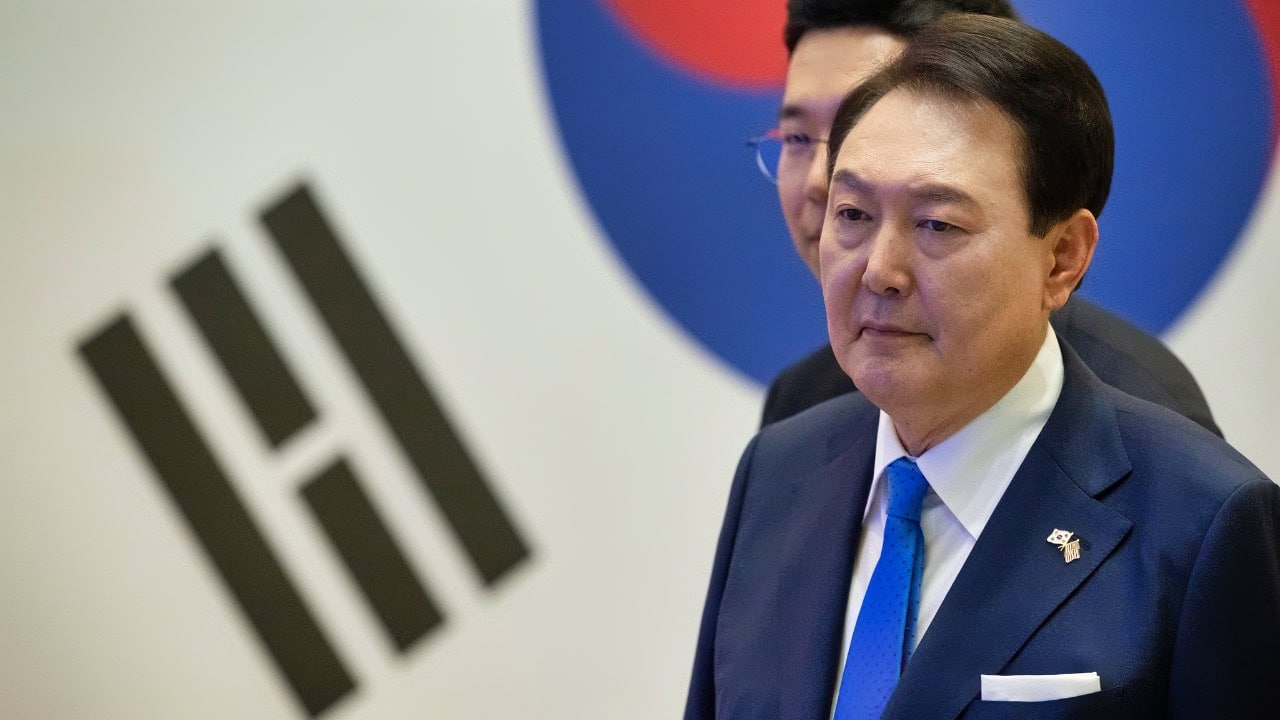On December 3, South Korean President Yoon Seok Yeol declared martial law. This was a huge surprise. South Korea has been a stable democracy since 1987. There has never been a martial law declaration in that period, and the South Korean constitution foresees martial law only in extreme circumstance such as a North Korean invasion. To prevent the abuse of the martial law executive authority – because South Korea had military dictators before 1987 – South Korea’s constitution requires the country’s legislature, the National Assembly, to ratify a martial law proclamation.
The National Assembly did not, less than three hours after Yoon’s declaration. A few hours after that, Yoon rescinded his declaration. The military, briefly deployed around the legislature, returned to base. No one was injured. Aside from scuffles inside and in front of the legislature for a few hours, there was no rioting.
If the closest example to Yoon’s strange power grab is the assault on the US Congress of January 6, 2021, then this was far less violent.
Yoon Must Go, but South Korea is Not in Crisis
Public opinion quickly turned against Yoon. Even Yoon’s own party, the Conservatives, quickly realized that martial law was a wild overreaction to Yoon’s grievances – that the opposition party made it too difficult for him to govern.
Yoon-aligned parliamentarians dithered initially, but when it became increasingly clear that Yoon had no good reason for his extreme move, they turned against him. On Saturday, when the opposition launched an impeachment vote in the legislature, with broad public support, enough conservatives broke ranks and voted to impeach. Yoon is now a suspended president. The nation’s prime minister is the acting president until South Korea’s high court, the Constitutional Court, rules definitively on the impeachment. It must ratify the legislature’s decision.
This entire process is playing out as required. The legislature did its job as required, both on the night of the martial law declaration and in the impeachment vote. The high court has scheduled its first hearing on the issue for December 27. It is moving with appropriate alacrity, given the gravity of the situation. There are street protests, but no rioting, violence, terrorism, and so on.
The protestors even pick up their trash when they finish and go home. Even Yoon backed down when confronted with the enormous public and legislative backlash. He accepted the National Assembly’s vote against martial law just a few hours after his declaration. He later apologized and accepted the impeachment vote.
Indeed, he has not resigned – as he probably should – but is within his presidential-constitutional rights to stay in office until the Constitutional Court hands down final judgment.
In short, this is not a crisis. South Korea’s democracy is not near collapse. The country is not on the verge of dictatorship or a coup. North Korea and China are not about to gain strategic superiority in peninsular affairs, and so on. Instead, the system is responding appropriately and nonviolently to a challenge. The challenge was indeed substantial. If South Korea were still under martial law, then we could genuinely speak of a constitutional, democratic crisis.
But it is not. If the challenge to South Korean democracy was dramatic, so was its defensive response. The public mobilized peacefully. The legislature asserted its rights and defended the Constitution. Even the president’s party abandoned him to protect basic democratic principles.
That is not a crisis or breakdown; it is a stress test successfully overcome.
By contrast, the US performed poorly on its own January 6, 2021, stress test. Former President Donald Trump, who stirred up that day’s assault on Congress, faced no accountability and was even re-elected president. Yoon, by contrast, will probably go to jail.
South Korea has surmounted bad, abusive presidents in the past. In 2016-17, it impeached another president. That process was completed itself peacefully and constitutionally. All appropriate steps were followed. Law, due process, and democracy were retained. That is happening once again now, and that is a testament to the robustness of South Korea’s democracy.
Democracies cannot stop individual politicians from misbehaving or outside the law. However, they can act to defend democratic institutions when abuses occur. That is what is happening now in South Korea.
This is not a crisis but a democracy performing correctly.
About the Author: Dr. Robert E. Kelly
Dr. Robert E. Kelly (@Robert_E_Kelly; RoberEdwinKelly.com) is a professor in the Department of Political Science at Pusan National University and a 19FortyFive Contributing Editor.

